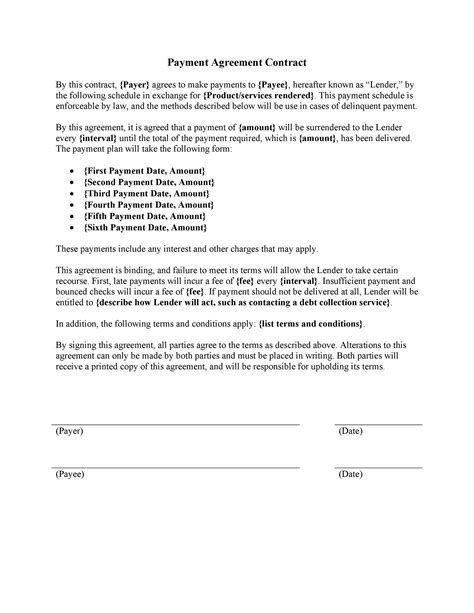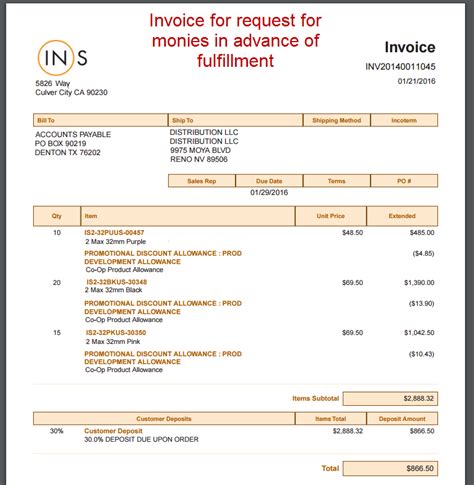- The Risks of Overpaying a Contractor
- The Importance of a Balanced Payment Schedule
- Negotiating Payment Terms with a Contractor
- 1. Never Pay the Full Amount Upfront
- 2. Set Milestone Payments
- 3. Use an Escrow Account
- Researching Standard Payment Practices in Your Industry
- Protecting Yourself from Contractor Scams and Fraudulent Schemes
As a client, you might have worked with a contractor before or someone who knows a bit about the contract process. One of the things that determine how smoothly the process will go is how much you pay upfront. Knowing the right amount to pay upfront will help you stay clear of common misunderstandings that can complicate the job’s progress.
For small projects, you can consider paying the contractor 10-20% of the expected budget upfront. For example, a $500 job’s deposit will be $50-$100. On the other hand, for more significant projects such as building a house or doing a significant renovation project, you can consider a higher deposit of 30% or more.
One reason for paying a deposit is that it shows the contractor that you are serious about the project and establishes trust between the two parties. However, it would be best if you were vigilant with contractors who demand a high deposit, say more than 50%. Such an amount should raise a red flag, and you should dig deeper into their credentials.
Once the job is complete, the last payment is due after inspecting the work and signing off that it’s satisfactory. It would be best if you also discussed the percentage to pay at the end, usually ten to twenty percent of the expected contract price.
In conclusion, there is no one-size-fits-all answer to what the right amount to pay upfront is. It falls back on the scope of work, the project’s size, and the contractor’s credibility. However, a fair deposit is considered between 10-30%, while the final payment is usually ten to twenty percent of the contract price. Always make sure you vet the contractor before issuing any deposits.
The Risks of Overpaying a Contractor
When you pay a contractor upfront, you are taking a risk that they will finish the project to your satisfaction. However, when you overpay a contractor upfront, you are taking on additional risks that can end up costing you time, money, and headaches. Here are some of the risks of overpaying a contractor:
1) Limited Incentive to Finish the Job
It’s important to understand that contractors depend on payment for their projects to cover their expenses and make a profit. If you pay a contractor too much upfront, it can reduce their incentive to finish the job quickly and efficiently since they already have your money. As a result, they may not prioritize your project and take on additional jobs, leaving you with a half-finished project.
Additionally, if a contractor requests a large upfront payment, it may be a sign that they have financial problems. In this case, they may be using your payment to cover their own costs rather than using it to complete your project. Overpaying a contractor can leave you vulnerable to a range of issues, from poor workmanship to project delays and even abandonment.
2) Low Quality Workmanship
Contractors who receive most of their payment upfront may feel they don’t have to provide high-quality workmanship as they’ve already been paid. They may skip critical details which you would otherwise have been made a priority had they still been charging for the service. Therefore, it is essential to set milestones in your agreement to ensure that the work is done to your satisfaction before making the next payment.
It’s important to remember that the quality of work done on your project affects not only your immediate satisfaction but also the value and safety of your home or business over the long term. In addition, shoddy work may require costly repairs or reconstruction later on, and you’ll still have to pay for a properly done job from a different contractor.
3) Legal and Safety Issues
Overpaying a contractor can also leave you vulnerable to legal and safety issues. When you overpay a contractor, they may not purchase the necessary permits or conform to the required safety standards and protocols. Consequently, when your local building inspector comes around to check the progress of the project and the permits, they could issue a Stop Work Order until everything is rectified, and You could be held responsible for the delay.
If any accidents occur on the construction site, you could also find yourself legally liable if the contractor hasn’t purchased the required insurances. To reduce your risk, it’s critical to include a requirement for proof of insurances such as Workers Compensation and General Liability to ensure you are not held responsible for any accident on the site.
The risks of overpaying a contractor significantly outweigh any savings you may gain. A better solution is to make payments based on work milestones that are approved by you, such as finishing a particular stage of construction, passing inspection, or adhering to safety requirements.
Making payments in this way tells your contractor that they need to perform well to get paid. You can use this method to ensure that the job is done correctly, on time, and to your satisfaction. Ultimately, by doing this, you will save yourself time and money in the long run and end up with a safe and beautiful job in the end.
The Importance of a Balanced Payment Schedule
One of the most important considerations when hiring a contractor for a construction project is developing a payment schedule that is fair and reasonable for both parties. It’s important to remember that a balanced payment schedule should reflect the work completed on the project and protect both the homeowner and the contractor. With this in mind, many homeowners may wonder how much they should pay the contractor upfront in order to secure their services.
To determine how much to pay upfront, it’s best to consider the scope of the project and the amount of money that will be required to purchase materials and start the initial stages of construction. This amount will vary from project to project, but as a general rule, it’s best to keep the initial payment to a minimum, preferably no more than 10-20% of the total project cost.
At the same time, it’s important to keep in mind that the contractor will need to cover their own costs while the project is underway. This can include everything from salaries and benefits for their employees to the cost of equipment and tools. In some cases, the contractor may also need to purchase materials upfront in order to complete the project on time. All of these factors should be taken into consideration when developing a payment schedule.
Ultimately, the goal of a balanced payment schedule is to protect both the homeowner and the contractor. By ensuring that payments are made on time and in proportion to the work completed, the homeowner can ensure that the project is on track and that the contractor is fulfilling their obligations. At the same time, the contractor can rest assured that they will receive payment for the work they have completed and can avoid any financial strain during the construction process.
However, it’s important to keep in mind that not all contractors are created equal. Some may require a larger upfront payment in order to cover their costs, while others may be willing to work with a smaller deposit. As such, it’s important to communicate openly with your contractor and to ensure that you have a clear understanding of their expectations regarding payment.
Ultimately, the most important thing is to ensure that both parties are comfortable with the payment schedule and that it is fair and equitable for everyone involved. By taking the time to develop a balanced payment schedule, you can ensure that your construction project progresses smoothly and that everyone is satisfied with the final results.
Negotiating Payment Terms with a Contractor

When it comes to hiring a contractor, the payment terms are an essential part of the negotiation process. You need to discuss and agree on payment terms with your contractor before the work begins. You should know what you’re comfortable with, what your state law mandates, and what the contractor prefers. Here are some tips on how to negotiate payment terms with your contractor:
1. Never Pay the Full Amount Upfront

Never pay the full amount upfront to your contractor, no matter how small the project is. Many contractors ask for a down payment to cover startup costs and materials. A reasonable amount to pay initially would be 10% of the total cost of the project. This would be enough to help the contractor buy materials or book labor without putting too much of your money at risk. It’s essential to keep a record of all payments, including the exact amount paid, the date, the method of payment, and for what purpose the payment was made. This record will become vital if any dispute arises between you and the contractor in the future.
2. Set Milestone Payments
Set up milestone payments for your project with your contractor. This means that you negotiate payments dependent on specific stages of completion. For example, you pay 30% of the total project cost after the job’s halfway point and 60% after completion of the project’s majority. Pay a maximum of 90% of the total cost before the project’s final completion, where the last 10% is held back until you are satisfied with the completed work. Milestone payments create financial incentives for contractors to be efficient and timely in their work. They also create more control over the allocation of funds, protection against uncompleted work, and reduce the total amount of financial liability.
3. Use an Escrow Account

Another way to pay your contractor is through an escrow account. This type of account is a third-party account that holds and disperses funds for the two parties. The contractor and client agree on a payment schedule, and the funds are released from the escrow account after the contractor has completed each milestone. Escrow accounts provide additional protection for both you and the contractor. The contractor can be sure they will be paid, and you have peace of mind knowing that the full payment will not be sent until the work is completed to your satisfaction. However, it’s important to note that escrow accounts often require an additional fee for their services.
To wrap it up, negotiating payment terms with your contractor is a crucial part of the hiring process. Set up a reasonable payment schedule, never pay the full amount upfront, and utilize systems like milestone payments and escrow accounts to protect you and your contractor. Keeping accurate records on payment specifics is essential in the event of a conflict or legal dispute. By understanding your rights and the types of payments that work best for you, you can ensure a smooth transaction that accomplishes your project’s outcome. Good luck!
Researching Standard Payment Practices in Your Industry
When hiring a contractor, you need to consider how much you should pay upfront to avoid getting scammed. It is essential to do your research and understand the standard payment practices in your industry to avoid falling prey to unscrupulous contractors. You don’t want to spend a significant amount of money only to have the contractor disappear before completing the project.
Various industries have unique payment structures, and it’s essential to understand how it works in your industry. For instance, in the construction industry, it is standard practice to pay a deposit upfront to initiate the project’s work. However, it is not recommended to pay more than 10% upfront payment, depending on the total cost of the project.
When researching payment practices, there are several considerations to consider:
1. State Regulations:
It’s important to note that some states have legislation that limits how much the contractor can receive as an upfront deposit. For example, in California, a contractor cannot receive more than 10% or $1,000, whichever is less, for work that costs more than $5,000. Some states have similar legislation, and it’s essential to research if your state has any regulations on upfront payments.
2. Size and Complexity of the Project:
The size and complexity of the project will also determine how much you should pay as a deposit. A large-scale project will require more funds upfront than a smaller project. It is also advisable to divide payments into milestones, with each milestone being achieved before giving the contractor more money.
3. Contractor’s Reputation:
Before hiring a contractor, it’s essential to research their reputation. You can do this by checking their reviews online, asking for referrals from family and friends, or requesting a portfolio of their previous work. This information will help you determine if the contractor is trustworthy and reliable, which will influence how much you should pay as a deposit.
4. Payment Protection:
Another crucial factor to consider when researching payment practices is how to protect your payments. There are several ways to do this, such as using third-party payment services like Escrow, which will hold the money until the project is completed. This solution provides a level of security for both the contractor and the client as the money is not released until the project is completed to the client’s satisfaction.
You can also protect your payments by putting everything into writing. Ensure that you have a written contract that specifies the work that is to be done, how much it will cost, the payment structure, and the timeframe for completion. This contract will help protect your investment and ensure that both you and the contractor know what is expected.
In conclusion, it’s essential to research the standard payment practices in your industry to avoid getting scammed when hiring a contractor. Take time to consider state regulations, the size and complexity of the project, the contractor’s reputation, and payment protection. With the right research, you can hire a reputable contractor and protect your investment.
Protecting Yourself from Contractor Scams and Fraudulent Schemes
When planning a home renovation, a homeowner’s priority remains to ensure that the project is completed within budget. However, the thought of losing their hard-earned money or getting duped by fraud contractors can make them skeptical. Though most contractors are reliable professionals, some prey on homeowners, promising more than they can deliver or offering shoddy workmanship at exorbitant prices. Thus, it’s better to be safe than sorry and take measures to protect yourself from contractor scams and fraudulent schemes.
Here are five ways to protect yourself from contractor scams:
1. Verify Contractor’s License
As a homeowner, your first step to ensuring that you’re working with a reputable contractor is to verify their license. Different states have different licensing requirements. However, many require that contractors demonstrate proof of insurance, worker’s compensation coverage, and a bond. Check with your state’s licensing agency to ensure that the contractor you hire meets all legal requirements.
2. Check Contractor’s References and Reviews
The next step is to ask for references from past clients, preferably those whose projects were similar to yours. You can also ask your friends and family for recommendations or use online review sites to check the contractor’s credibility. Check if the contractor has a good track record in completing projects on time and within budget. Also, verify if the contractor worked professionally and effectively in handling the homeowner’s concerns.
3. Get Detailed Written Agreement
Never proceed with a project without a detailed written contract. A contract legally binds the contractor to the project’s scope, timeline, and payment terms, ensuring that they deliver what they promise. The contract should also specify details, such as the type of materials to be used, the project’s completion date, and the payment method. Be wary of a contractor who asks for extensive payment before beginning or completing the project.
4. Don’t Pay Too Much Upfront
A general rule of thumb is not to pay more than 10% of the project’s total cost upfront. Paying too much upfront leaves you at risk of losing money if the contractor fails to complete the project as promised. As a homeowner, it’s advisable to pay the contractor in instalments, based on the project’s completion milestones and not get ahead of the contractor’s work.
5. Be Mindful of Red Flags
Be cautious of contractors who discourage you from getting permits or doing inspections. Contractors who is a sign of fraudulent contractors, who may cut corners to complete the project quickly, leaving you with substandard workmanship. Similarly, a contractor whose quote is substantially lower than other contractors may be a sign of a scammer who will use low-quality materials or might abandon your project altogether midway through.
By following the above measures, you can protect yourself from fraudulent contractors and rogue operators and ensure that your project proceeds smoothly. Always trust your instincts, and never be afraid to ask your contractor tough questions to gauge their credibility. It’s your home and hard-earned money on the line.

